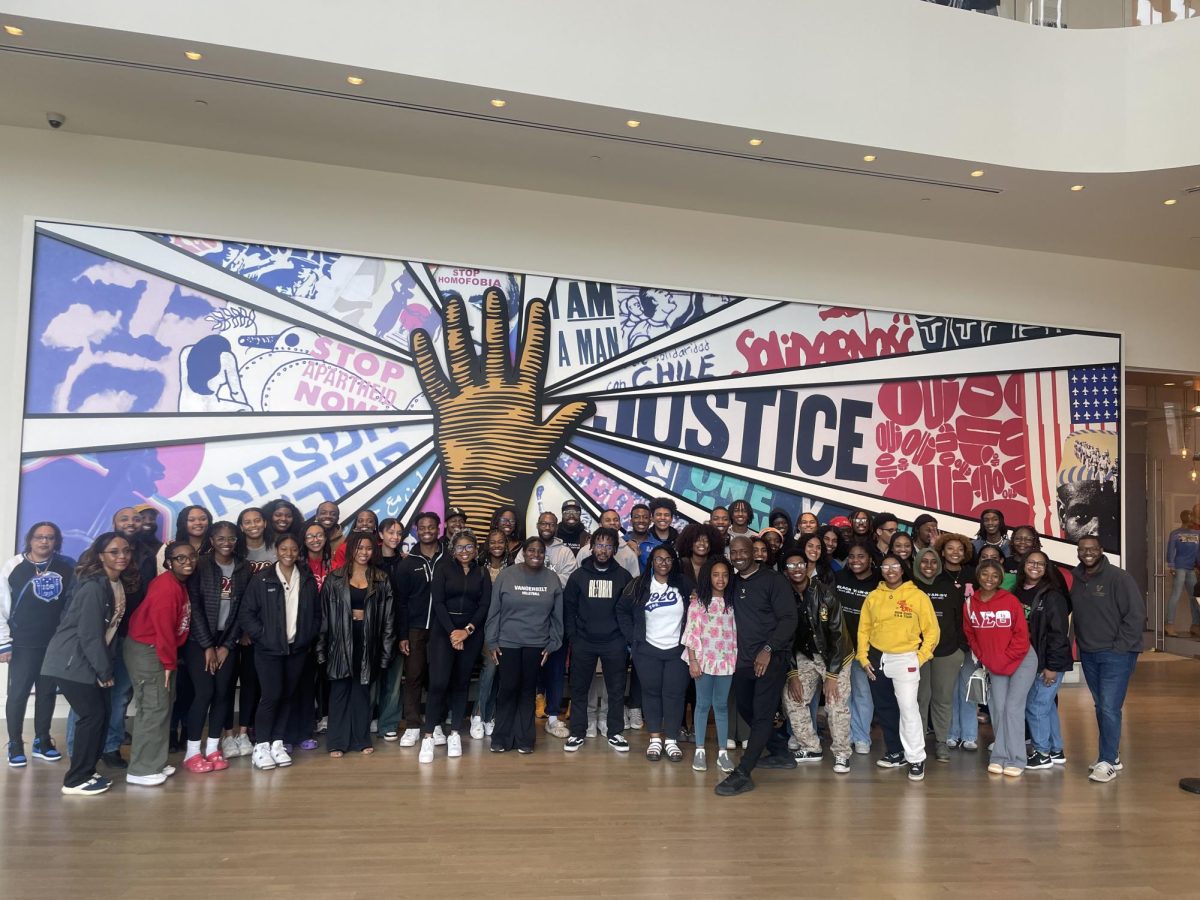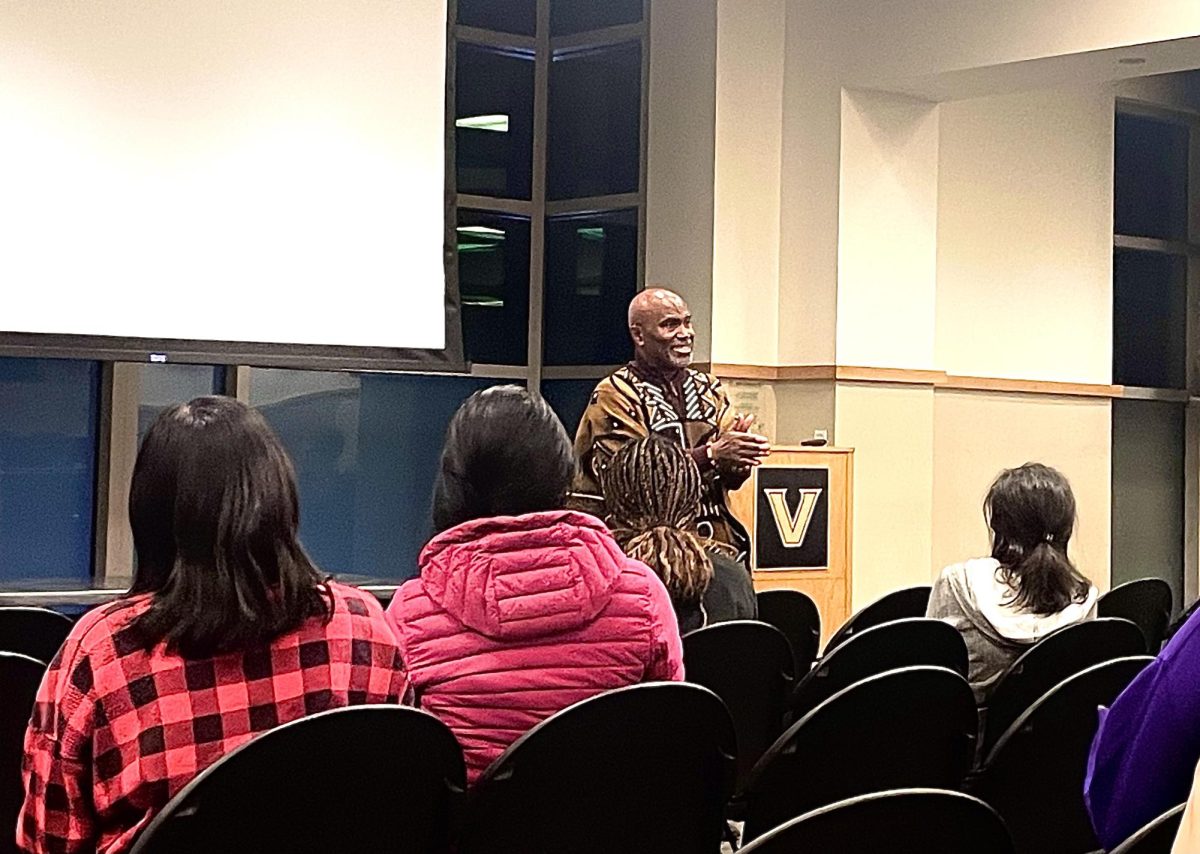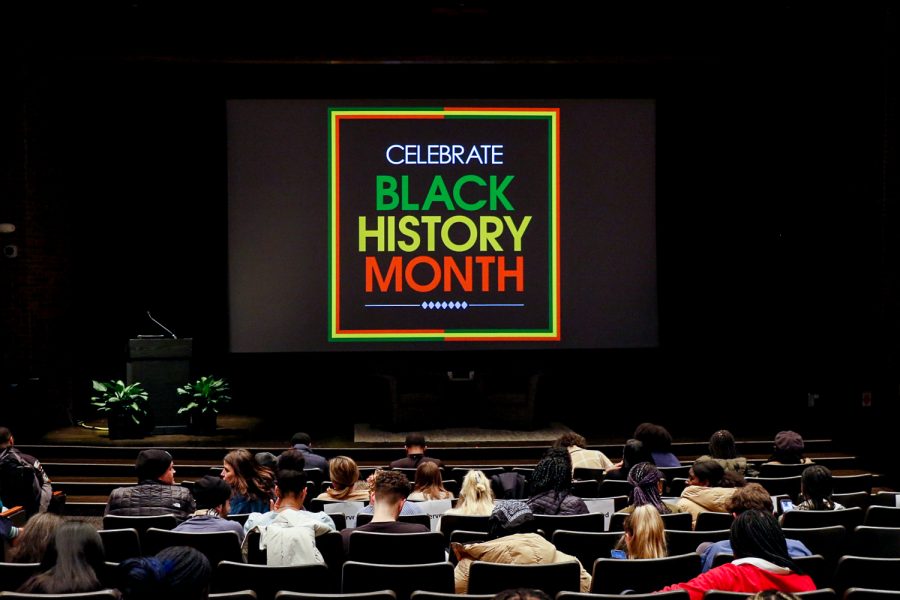To launch Black History Month programming at Vanderbilt, Vanderbilt residential colleges hosted award-winning sports journalist Jemele Hill on Feb. 1 as the featured speaker for the 15th annual Murray Lecture. Hill is currently a contributing writer for The Atlantic and has won numerous awards including the National Association of Black Journalist’s Journalist of the Year and an Emmy for the ABC News Special, The President and the People.
The event began with an introduction from Dean of Residential Colleges Melissa Gresalfi and Rosevelt Noble, Assistant Dean of Residential Colleges and the Director of the Black Cultural Center, as well as a virtual performance of “Lift Every Voice and Sing” by Melanated A Capella.
Noble introduced Candice Lee, Vanderbilt’s Vice Chancellor for athletics and university affairs and athletic director, onto the stage, who in turn introduced Jemele Hill. Lee interviewed Hill about her new release, “Uphill: A Memoir.”
Hill said that her love of books drove her to write “Uphill.” Hill said she sought to be vulnerable and tell her full story, especially after attracting national attention for her critical tweet about former president Donald Trump.
“I realized people know me very one-dimensionally…you see me on ESPN, you may have known about my controversy with the president,” Hill said. “You’ve seen me in these very narrow spaces.”
In her memoir, Hill wrote about being in an almost-fatal car accident when she was seven years old. Hill spoke about struggling with her injuries after the accident and having to confront the possibility of losing an important outlet in her life at the time: sports.
“The doctor was not sure if I would ever be cleared to really play sports again,” Hill said. “It’s hard for an incident like that to not make you wonder, ‘Why am I actually here?’ I discovered what my life’s purpose was going to be, which was journalism.”
Hill added that writing became an important outlet for her to cope with and process her past, including sexual assault and her mother’s experience with addiction.
“I just felt, more than anything, that my childhood was being taken from me,” Hill said. “[But] from the worst trauma, I was able to discover something that I loved and was passionate about.”
Following the discussion about Hill’s memoir and childhood, Lee asked Hill about her thoughts on the recent death of Tyre Nichols.
“The police, by design, were never supposed to protect Black people,” Hill said. “It wasn’t the race of the officers that mattered, it was the race of the victim that mattered… I can’t call it a broken system, because it is working as it was intended.”
The panelists transitioned to discussing Hill’s professional experiences as a sports journalist at ESPN. When it came to pursuing a career in sports writing, Hill said there were very few opportunities for Black women. Despite the lack of representation, Hill said she entered into her career with a sole focus on sports journalism.
“I think all of the stories that you want to tell about the society we live in, the world we live in, you can tell them all through sports,” Hill said. “Sports is one of the few things that, as a society, brings us all together.”
Hill and sports journalist Michael Smith began their sports commentary together in 2011 on the sports show His and Hers.
“We did television by no rules,” Hill said. “We were just being ourselves, and we were unapologetically Black in how we did that. It got us a lot of loyal viewers.”
In 2017, Hill and Smith were promoted to host an evening segment of ESPN’s SportsCenter. However, Hill said the promotion was not entirely positive and led to her leaving the network in 2018 after the removal of their “personality wall” from the show.
“Little by little, they started to take our Blackness out of the show,” Hill said. “With the type of people Mike and I are, we’ll walk away before we are ever on TV being someone else.”
Hill added that it was difficult and complicated to leave ESPN and the show.
“I was kind of like the athlete with the no-trade clause. I had to waive the clause to get off the show,” Hill said. “[Leaving] was only going to happen with my permission, and I was not going to come to work every day and fight to be Black.”
After leaving ESPN, Hill began writing for The Atlantic in 2018 and is now focused on her podcast, Jemele Hill is Unbothered.
“I’ve gone through some things, overcome a lot of things, [and] made some mistakes…You can call me whatever you want, but I’m going to continue to use my voice in what I feel is an effective way. I’m going to continue to fight for Black women,” Hill said. “Unbothered comes with a lot of peace.”
First-year Sydney Brown said seeing someone who looks like her on TV was inspiring and impactful.
“I used to watch her when she was on TV,” Brown said. “She was just a really strong role model for me because there weren’t a lot of people who looked like me on TV. Seeing a girl with box braids like the same way I wear my hair was really inspiring in a way that I didn’t even expect it to be.”
First-year Zoey Tripp echoed Brown’s statement, adding that she gained insight from Hill about how to effectively represent her community.
“As a Black woman, I really felt that it’s important to hear advice from Black women that take pride in who they are and what they represent to the community,” Tripp said. “Showing up just means that I’m supporting that, and also learning how to be my truest and authentic self in whatever space I show up in.”










